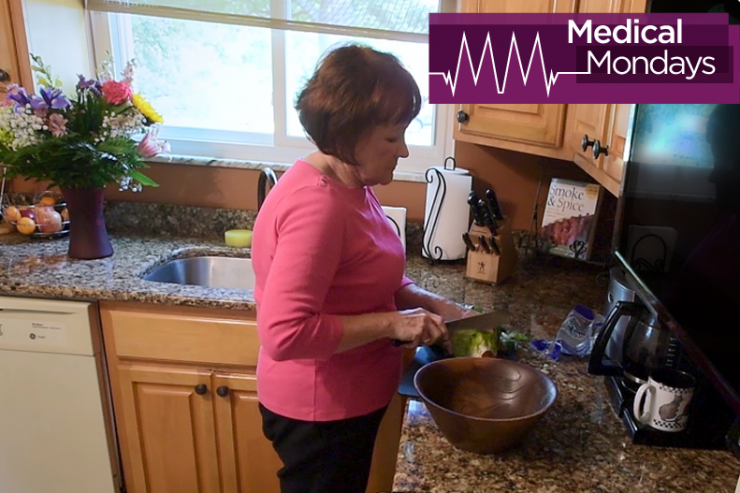This week on Medical Mondays, we’re focused on Primary Care. You’ll meet Francine, whose relationship with her primary care physician led to early detection of colon cancer.
Primary care physicians can act as coordinators for your health care needs, helping you to navigate the system, treating basic medical needs, and helping you to find the right specialist if the need arises. They’ll also manage many of your preventive care screenings, like colonoscopies, blood pressure monitoring, mammograms, etc.
Here, you’ll learn:
- The importance of having a PCP
- Health tips for men and women of any age
- How to talk to your doctor
- Tips for making the most of your primary care appointment
- Why checkups and heart screenings are important
To find a UPMC primary care physician near you, call 1-800-533-UPMC, or request an appointment online.
-
Video: Your Primary Care Physician Is Your Partner in Health
The primary care physician is an advocate, partner and listener and probably the first person you call when you get the sniffles. Read more to discover exactly how a primary care physician functions as an essential part of your healthcare teamLearn More
-
Infographic: Women’s Health Tips For Any Age
Whether you are in your twenties, thirties, forties or beyond, there are ways to help you get on a better track. From using sunscreen to cutting out added sugar, find out the steps you can take throughout your life to stay healthy for years to come!Learn More
-
Men’s Health Tips by the Decades
Different ages mark different milestones in your life, especially in terms of healthcare. Find out when you should begin scheduling regular screenings and what you can do today to keep you healthy through the years!Learn More
-
Ask the Doctor with David Hutzel, MD
Going to the doctor can be nerve-wracking, and you may not be sure what to say or the best way to explain something. We asked David Hutzel, MD, internal medicine physician, UPMC Hamot Physicians Network, for some tips to make sure all of your problems and concerns get addressed before you head home.Learn More
-
4 Ways to Get the Most Out of Doctor Visits
We all lead busy lives, and sometimes it’s hard to squeeze in a visit to your doctor. Here are four tips to make the most of your appointment.Learn More
-
The Importance of Check-Ups and Heart Screenings for Men
Many men overlook the importance of getting regular checkups. No matter how busy you are, it’s important to keep up on visits to your primary care physician, and as you get older, you’ll want to be screened for other types of health problems even if you don’t display any symptoms. Read on to learn more about the importance of regular health screenings and the checks you should get as you get older.Learn More






